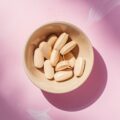Introduction to Astaxanthin
Astaxanthin is a type of carotenoid with remarkable health benefits. This red pigment occurs naturally in various microalgae, seafood, and some birds such as flamingos. As a dietary supplement, astaxanthin has powerful antioxidant and anti-inflammatory properties.
Key Health Benefits
Research on astaxanthin suggests it may provide the following wellness perks:
- Protects cells from damage
- Supports brain, heart, and immune health
- Enhances skin moisture and elasticity
- Reduces exercise fatigue and recovery time
- Helps vision and eye discomfort
Food Sources
Astaxanthin gives salmon, trout, lobster, shrimp, and other sea creatures their characteristic pinkish-red hue. However, getting enough from the diet alone can be challenging. Top food sources include:
- Wild salmon
- Rainbow trout
- Lobster
- Crayfish
- Krill oil
Supplements
Many choose to take astaxanthin supplements derived from natural algae sources. Look for products certified sustainable and free from harsh solvents. Standard doses range from 2-12 mg per day.
Safety Considerations
Astaxanthin supplements are generally recognized as safe, with few side effects in most people. However, check with your doctor before use if pregnant, breastfeeding, or taking other medications, as interactions are possible.
FAQ
What foods contain astaxanthin?
Astaxanthin naturally occurs in seafood like wild salmon, trout, shrimp, lobster, and fish eggs. Microalgae and yeast are common vegan sources.
What are the benefits of astaxanthin?
Research shows astaxanthin has antioxidant, anti-inflammatory, and other properties that may support brain, heart, skin, eye, and immune health.
When should you take astaxanthin?
Most supplements recommend taking 2-12 mg astaxanthin daily with food. Splitting the dose morning and night is ideal for maintaining optimal blood levels.
Can astaxanthin cause any side effects?
Astaxanthin is generally well tolerated, even at high doses. In sensitive people, excess supplementation may possibly cause upset stomach, headaches, muscle pain or rashes.
Is astaxanthin safe during pregnancy?
There is not enough research on astaxanthin safety during pregnancy. Check with your prenatal provider before taking astaxanthin supplements while pregnant or breastfeeding.









